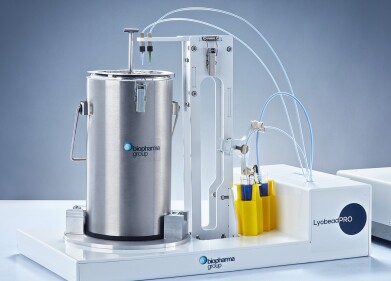-
 Gene variant links MCI to brain atrophy
Gene variant links MCI to brain atrophy
Laboratory Products
Gene variant links MCI to brain atrophy
Jan 14 2014
People with mild cognitive impairment (MCI) may have accelerated rates of brain atrophy due to the presence of a certain gene variant, according to a new study.
Researchers from the Duke University School of Medicine in Durham, North Carolina, focused on the gene apolipoprotein E (APOE), which is seen as the most important genetic factor known in non-familial Alzheimer's disease.
They worked on the basis that APOE has different alleles, or gene variations, with every human carrying two APOE alleles, and most people having at least one copy of the APOE epsilon 3 variant, which is considered neutral with respect to Alzheimer's risk.
However, there is the less common epsilon 4 allele, which is associated with a higher risk of development of Alzheimer's, earlier age of onset, and faster progression in those affected, explained senior author Dr Jeffrey Petrella, associate professor of radiology at Duke University.
After analysing data from the Alzheimer's Disease Neuroimaging Initiative (ADNI) involving 237 people with a mean age of 80 with MCI, the researchers recorded a slight but noticeable decline in cognitive ability, which is tied to a higher risk of Alzheimer's .
The experts also used MRI to measure brain atrophy rates in these patients over a 12- to 48-month period and found that the epsilon 4 carriers exhibited markedly greater atrophy rates than epsilon 3 carriers in 13 of 15 brain regions classed as key components of the cognitive networks disrupted in AD.
Dr Petrella said the results highlighted atrophy in brain regions that are known to be affected by Alzheimer's, in a population of patients who do not have Alzheimer's, but are at risk for it.
He added: "This suggests the possibility of a genotype-specific network of related brain regions that undergo faster atrophy in MCI and potentially underlies the observed cognitive decline."
As current FDA-approved drugs treat symptoms but do not modify the underlying cause of the disease, the team will now attempt to make "continued inroads" toward the goal of developing and testing drugs that modify the disease process itself, Dr Petrella concluded.
Digital Edition
International Labmate 49.6 - Sept 2024
September 2024
Chromatography Articles - HPLC gradient validation using non-invasive flowmeters Mass Spectrometry & Spectroscopy Articles - From R&D to QC, making NMR accessible for everyone: Putting NMR...
View all digital editions
Events
Oct 06 2024 Liverpool, UK
Oct 08 2024 Gothenburg, Sweden
Oct 09 2024 Birmingham, UK
Oct 09 2024 NEC, Birmingham, UK
Oct 15 2024 Milan, Italy

















